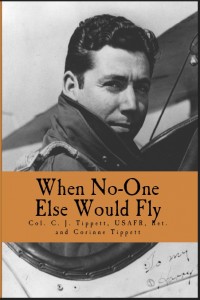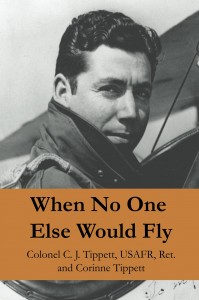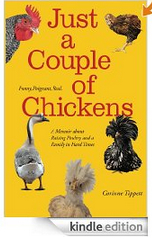
This is a mockup of a draft cover for Col. C. J. Tippett’s memoir, embedded in my new book about him. Handsome grandfather! Well, he wasn’t my grandfather at that time… and the book is in advanced draft, entering the submission to publishers cycle – before I go ahead and self publish. Which will it be?
I’m holding a complete advanced draft of my book about my grandfather, Col. C. J. Tippett, and his aviation pioneering adventures in my hand, and I’m asking myself:
Should I submit to publishers? Or should I self publish?
And I am a self publisher, and one of my topics on this website is How To Self Publish A Book!
I’m not alone wondering. Many authors holding a finished, or near-finished, manuscript are wondering. And if they aren’t, then as they enter the traditional publishing submission cycle, they will be. Many authors, and publishers, and agents, believe that there is a mark of professionalism – a stamp of approval – a badge of belonging – a mantle of accomplishment…. to a traditional book deal and I agree. There is. The only way for a self published author to earn a similar mark, stamp, badge, mantle is to sell enough books to either make a profit, attract a bigger publisher, or both.
But there is another very practical aspect that drives the question.
Self publishing is a lot of work, and financing a print run large enough to make a profitable deal with book distributors takes a lot of money. Traditional publishers take on that financial burden, but then the self publisher may be giving up more earning potential on each book sale. If there are enough book sales to make a profit.
And so the spinning dervish of the decision goes round and round and round.
Here is another perspective that I hope can help. The traditional book proposal process forces me to carefully review and prepare my book’s marketing potential. I have to do this anyway to successfully self publish my book.
I have to write a catching introduction, describe my book briefly yet thoroughly, summarize each chapter, choose sample chapters, write a pertinent personal bio that does not contain “I started writing at age 8″… (ruh roh, …) and package it all up with a marketing plan that includes a discussion of competitive titles.
So why not go through the book proposal process (doing it properly and carefully) and submit to agents and publishers that I really do think might be interested in my project?
I can’t think of any reason not to.
I take it further, and continue to submit my books even after I have self published – starting my letters with “My book has sold over 1500 copies at XXX locations. I have received YYY positive reviews, and XX emails and letters from readers who enjoyed the book…” and no, I haven’t yet attracted a publisher or agent, but I have sold over 1500 copies of my book, Just A Couple Of Chickens, so far – and going strong.
I think, one day soon, traditional publishing and self publishing will both be processes authors use. I’m starting now, despite the gap that does currently exist between the two publishing camps. My advanced draft of my grandfather’s biography, which was working titled “CJT, A Biography” and is now working titled “When No-One Else Would Fly, The Life of Col. Cloyce Joseph Tippett, USAFR, Ret.” is now in the submission process (I’ve compiled a list of publishers who accept direct proposals from authors as well as genre-specific agents) and may be self published in 2013 (or 2012) depending on the results of both my submissions and my advance marketing work.
Stay tuned to find out how it goes! You can also sign up here to get an email when the book is ready for purchase.
Actually, the funnest part of the whole process is researching the “competitive” titles that are similar to my aviation history biography of Col. C. J. Tippett. I don’t think of them as competition, I think of them as reading material!
« Famous People Who Met My Grandfather… Sheriff Eugene W. Biscailuz Exotic Chickens, Heritage Chickens, Standard Chickens… Which Do I Want? »


